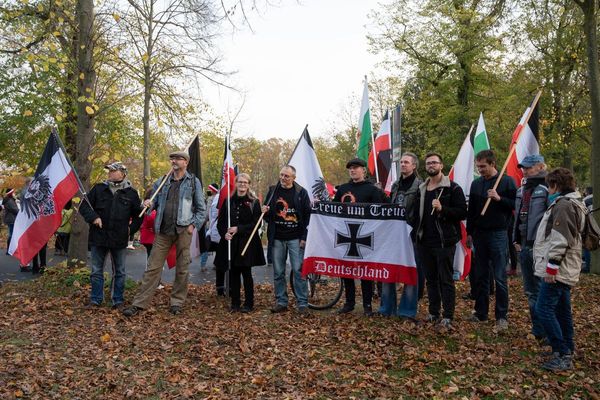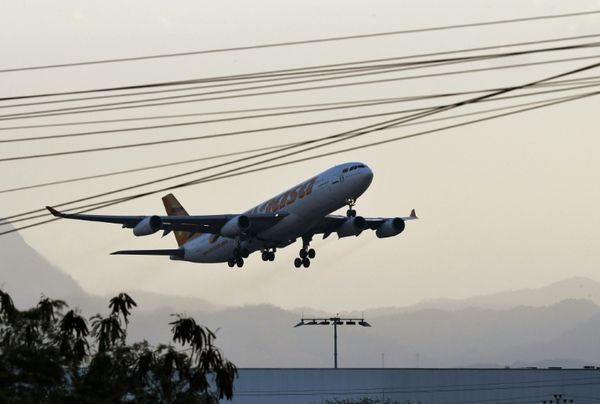Award-winning Australian human rights lawyer Daniel Webb says there has been a "deliberate" ploy on both sides of politics to "numb the public into submission" and hide the horrors of offshore detention from their view.
The Australian-funded detention centres in Manus Island, Papua New Guinea, and Nauru have made multiple headlines over the past fortnight as conditions worsen.
Hollywood star Russell Crowe called Manus "a nation's shame" and said the cruelty it inflicted on its inhabitants was "f***ing disgraceful". The United Nations slapped Australia down over its policies and urged it to accept New Zealand's offer to take 150 refugees. Leaked footage last week exposed the squalid conditions inside the Manus centre.
/arc-anglerfish-syd-prod-nzme.s3.amazonaws.com/public/Z6EIQRVFF5GUFIWYHE7ZXP3NCA.jpg)
And in Canada today Webb, of the Human Rights Law Centre, was recognised with the Global Pluralism Award for his crusade against the Government's refugee policies and for preventing more than 300 asylum seekers from being deported to the islands.
Speaking to news.com.au in New York last week, Webb said successive governments had kept the refugees out of sight and out of mind in an effort to dehumanise them.
"There's been a deliberate political strategy to numb the public into submission and normalise the idea that it's just okay to leave innocent people languishing on remote islands," he said.
The Melbourne-based lawyer has been to the remote Manus detention centre three times, and he described the horror hidden inside an island paradise.
"It was awful. It was shockingly overcrowded, there were guards everywhere, there were really clear signs of the level of suffering that was being inflicted," Webb told news.com.au.
/arc-anglerfish-syd-prod-nzme.s3.amazonaws.com/public/62UQX5KOMVBB7MN7D6VJRAMOCY.jpg)
One image that sticks with him is of the signs littered throughout the centre that urge guards to have their knives on them at all times so they can cut down detainees who had tried to hang themselves.
"We're not talking about conditions that are a bit uncomfortable; we're talking about a level of suffering and torment that is so severe that it creates a risk of suicide that is so ever-present that every single guard for every single minute of every single day has got to have a Hoffman knife on them ready to cut someone down who's trying to kill themselves," Webb said.
"Everywhere I walked in that detention centre I met people who would point out the bullet holes and show me their injuries and describe their fears of violence.
"But the thing that caused them the most anguish was the uncertainty.
"They had no idea if they would be there for a week, or a year, or forever. They had no idea if they'd ever see their families again. They had no idea if they would ever get a chance to build a life in freedom and safety.
/arc-anglerfish-syd-prod-nzme.s3.amazonaws.com/public/54TA5M6NGFC57LPXC5VIOTUGW4.jpg)
"As part of a court case I was involved in, one of the refugees described that uncertainty as being like mental torture. It beggars belief that three and a half years later, after all of the violence and all of the suffering and all of the deaths that their torture continues."
More than 400 refugees and asylum seekers have barricaded themselves inside an abandoned detention centre on Manus and are refusing to leave over safety fears. There is no food, water, power or sanitation and Amnesty International reports that as many as 90 of the men there are sick.
There are about 2000 asylum seekers on Manus and Nauru, the vast majority of whom have been proven to be legitimate refugees. Reports have trickled out over the past four years of asylum seekers suffering from violence, sexual assaults and self-harm as a result of the conditions.
The Manus Island centre is "buried deep" inside a naval base and isn't even visible from its heavily guarded front gate.
/arc-anglerfish-syd-prod-nzme.s3.amazonaws.com/public/MECCJILKDVDKZBJRTYXTTIEJGA.jpg)
"There are an awful lot of places our Government could choose to imprison innocent people," Webb told news.com.au.
"It has chosen an old naval base about a 45-minute drive out of town on one of the most remote islands in Papua New Guinea for a reason - and that is to keep hidden from view what they know full well would offend Australian people's sense of decency and fairness.
"And I've got to say, when I walked through that place and I see 1200 terrified and exhausted faces pointing out the bullet holes and describing their fears, the thing that goes through my mind is: 'If only people could see what I am seeing right now, no one would think this okay', and that is precisely why the Government goes to such extraordinary lengths to keep this stuff hidden from view."
He said he became a human rights lawyer because he believed that "all human beings deserve basic decency and respect".
/arc-anglerfish-syd-prod-nzme.s3.amazonaws.com/public/MHBO4E3V5JCLFGQXEOQFJE3A3M.jpg)
"There is nowhere in my country right now where we have lost sight of that basic value more than in the way we are treating innocent people seeking asylum," Webb said.
"It offends me to my core that people think it's okay to do this to innocent people."
Both Labor and Coalition governments have stood by offshore detention policies because they have been successful in stopping the flow of boats to Australia's border.
Webb admits it is a "vexed" political issue but he says human lives are still at stake - even after the boats have been stopped.
/arc-anglerfish-syd-prod-nzme.s3.amazonaws.com/public/2BZWDSTWF5ERHP5DB2A6HPZGXE.jpg)
"I know that the politics around this is toxic and I know that it may seem complex, but being deliberately cruel to innocent human beings is fundamentally wrong. We can't ever forget that.
"We can't ever abandon our basic moral compass and on this issue we have."
Webb said there were "extraordinary" men on Manus Island who Australia would be "lucky" to have.
One is Iranian journalist Behrouz Boochani who secretly recorded an entire documentary inside the centre that was eventually screened at the London Film Festival.
Another is Rohingyan refugee Imran Mohammad who taught himself English while locked up and went on to write opinion pieces for Australian newspapers.
"When I meet these men and when I speak with them, I see people who are not just victims of mistreatment by Australia, but tremendous lost opportunities for Australia," Webb said.
Ultimately, he believes the remaining detainees should be housed in Australia until they are found a permanent home.
Mr Webb said the "triumphs" in the campaign against the Government's policies came when Australians focused on people, such as during his #LetThemStay campaign last year, which inspired everyday citizens to protest the deportation of asylum seekers, and when doctors at Brisbane's Lady Cilento Hospital refused to release "Baby Asha" because they believed Nauru was unsafe.
/arc-anglerfish-syd-prod-nzme.s3.amazonaws.com/public/XMVNYWRNANH7TN7RV5TD3HK7NA.jpg)
"For the first time in a long time, people weren't thinking about all of the huff and puff and toxic white noise about borders and boats," Webb said.
"They were thinking about people whose faces you could see, and voices you could hear and in those moments the genuine decency and compassion of Australian people bubbled to the surface and people around the country - schools, churches, politicians, sportspeople, hospital staff - took a stand for basic decency and compassion, and I think the same thing is starting to happen now.
"I do have hope that the tide is turning and it must."







